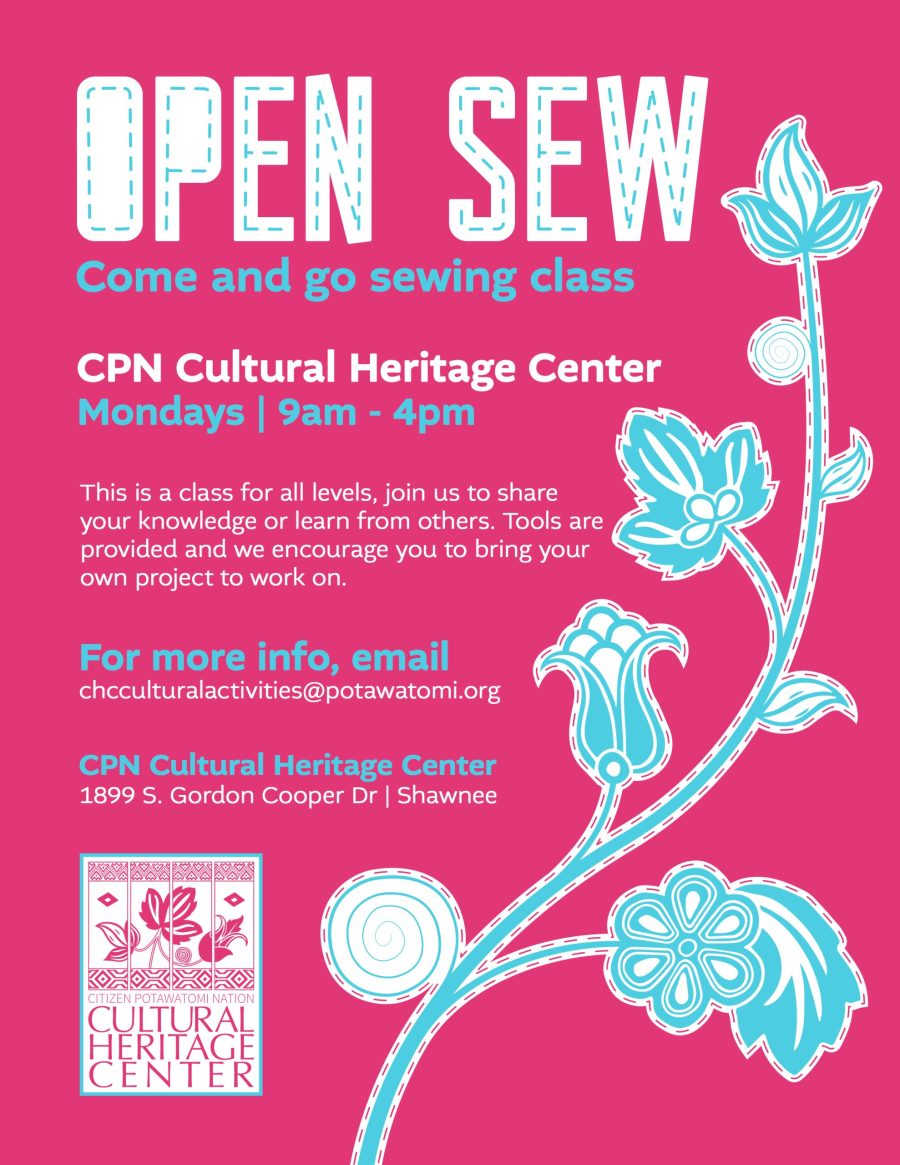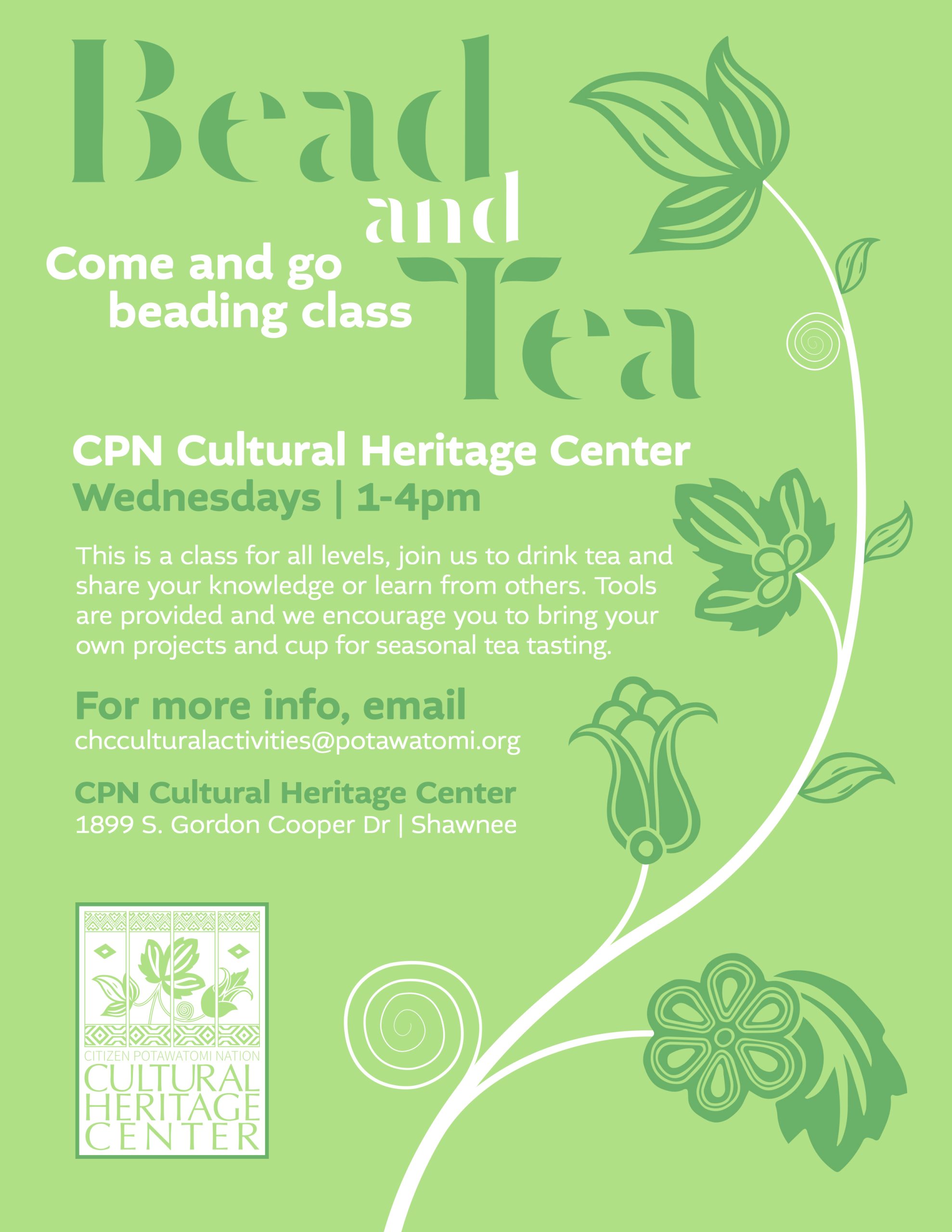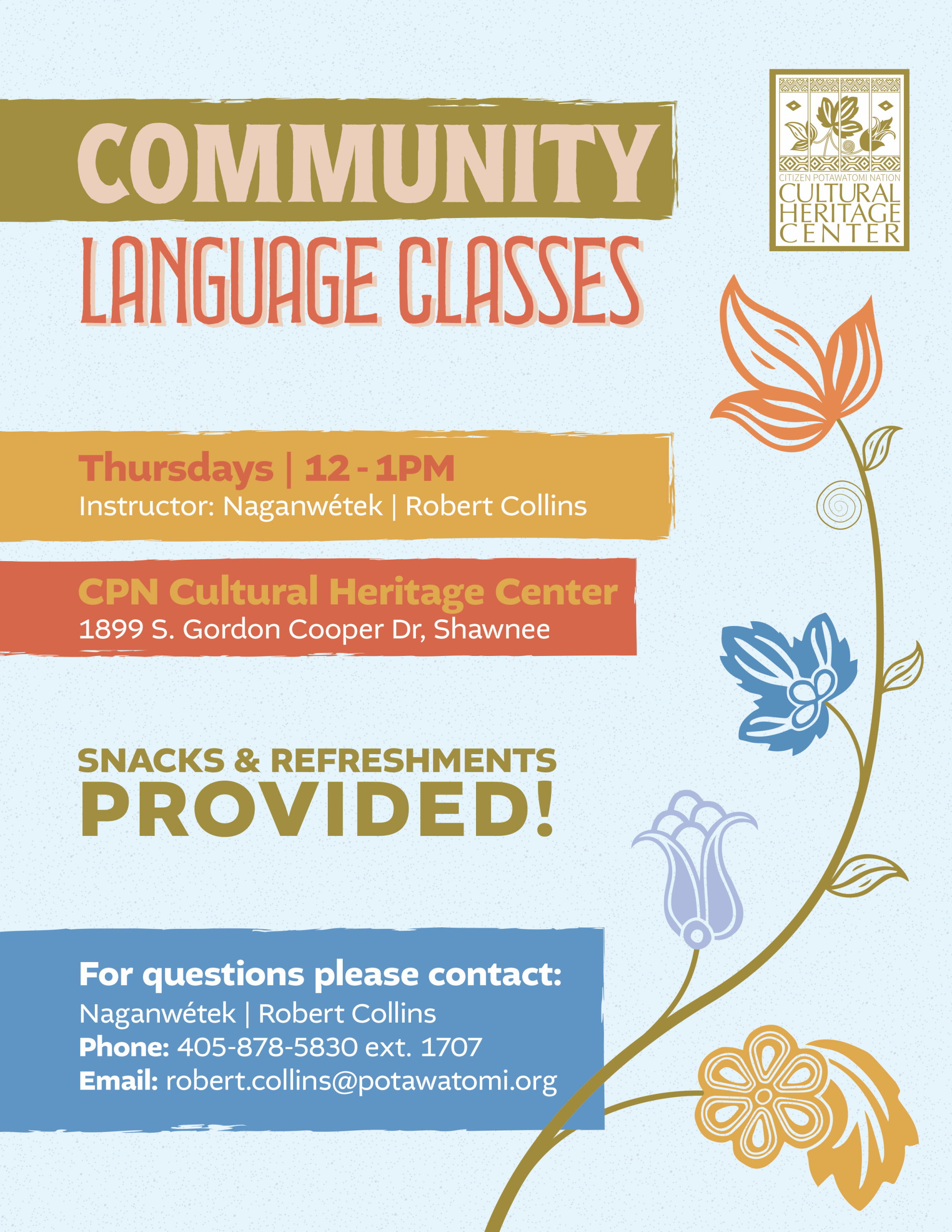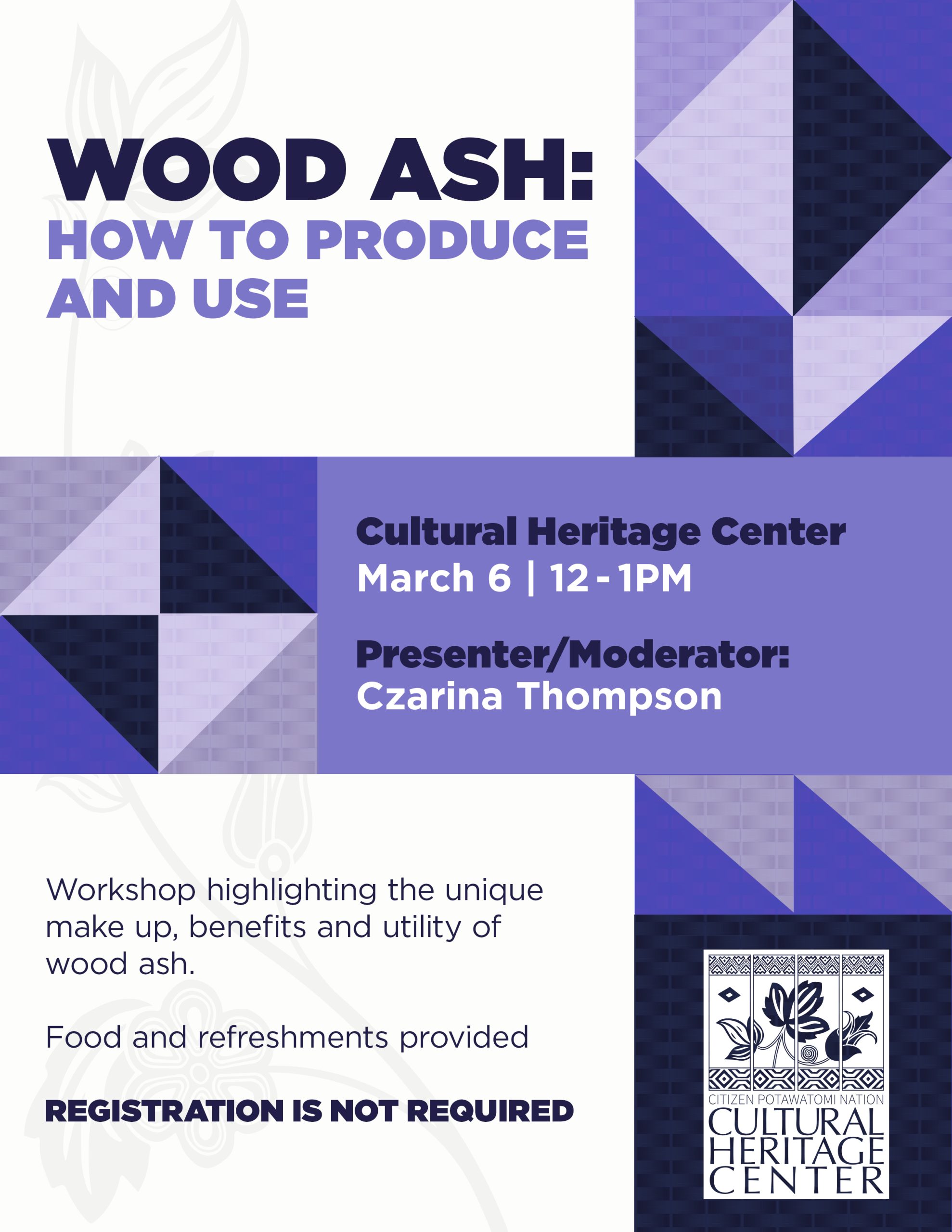Citizen Potawatomi Nation
Cultural Heritage Center
The Citizen Potawatomi Nation Cultural Heritage Center serves as a living center of edification to our Tribal citizens and the public, unifying and perpetuating the diverse culture, traditions and history of the Citizen Potawatomi Nation through research, interpretation and exhibition.
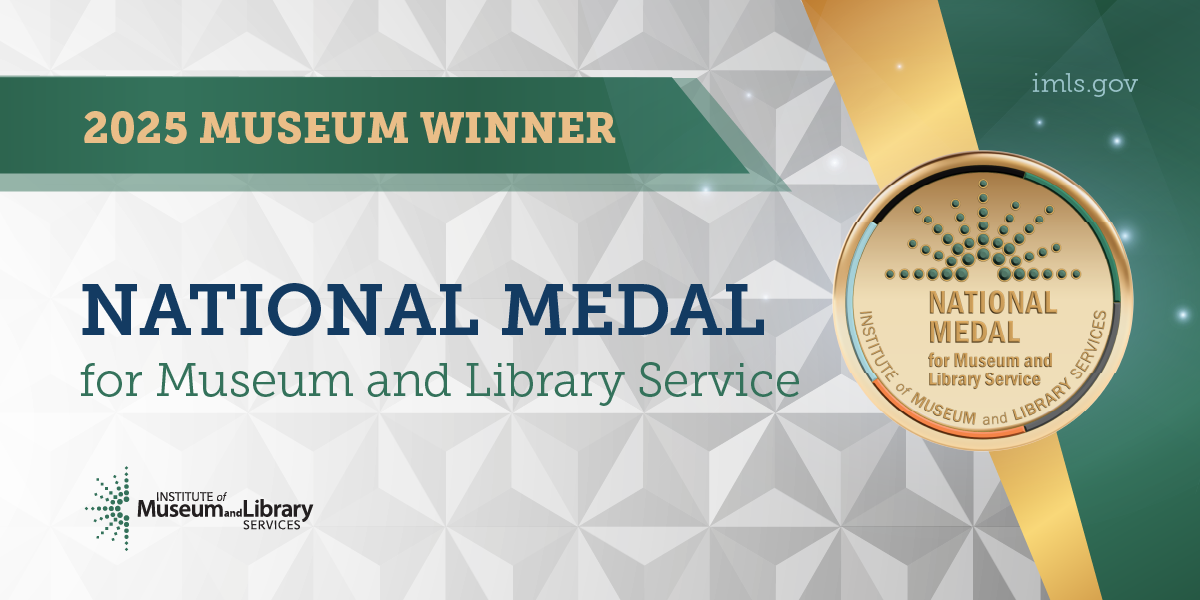

Newsletter
Stay connected to the Cultural Heritage Center’s events, news and stories with our quarterly newsletter, Mnwaté.
History
Discover our journey through time - from influential Great Lakes people to innovative Oklahoma nation, the story of the Citizen Potawatomi Nation is one of strength, resilience and legacy.


